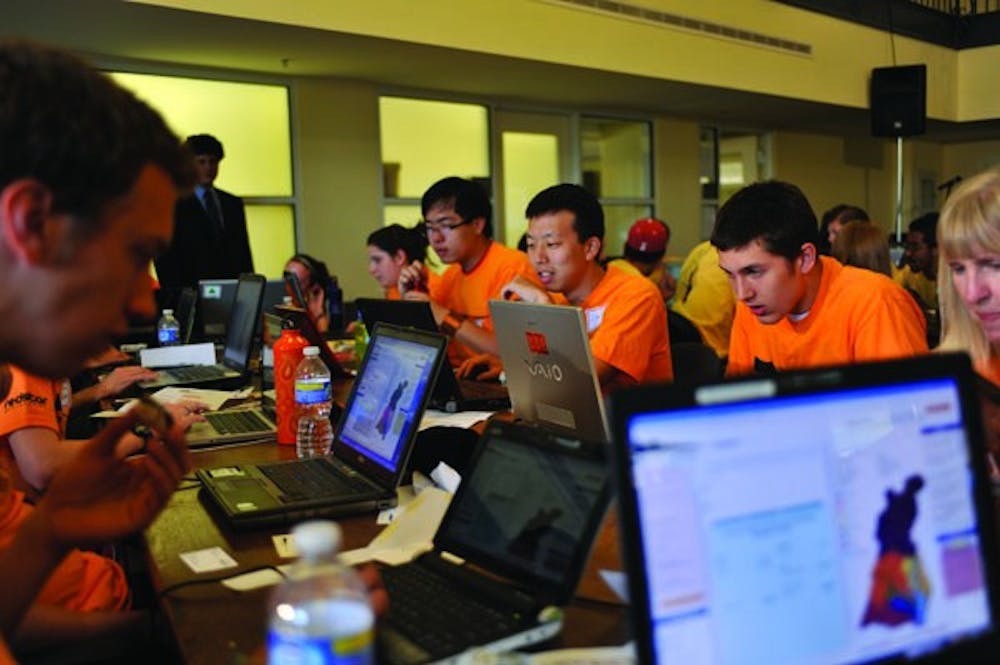The University held a demonstration yesterday of the UVA Bay Game - a simulation created in collaboration with Azure Worldwide that allows players to take on the roles of individuals who live in the Chesapeake Bay watershed area. Roughly 100 students and about 20 guests participated in the two-hour event in Clark Hall, during which they tried out a technology that shows how daily decisions affect the bay's health.
"This is mostly designed for policymakers to be able to decide in a politically neutral and scientifically sound arena, and to be able to play out their decisions and see the effects long term. In the long run, we will be developing this as a K-12 game and applying it to use in watersheds around the world," Azure Worldwide co-founder Philippe Cousteau said.
The current incarnation of the Bay Game is an expansion of a small simulation the University conducted last year.
"It has been no small feat to create this platform, to collaborate information and to give people adequate roles that provide us with useful scientific feedback," Cousteau said.
University officials, however, may believe it was well worth the effort.
"The Bay Game exemplifies the highest mission of U.Va., which is to bring knowledge out into society," Vice President for Research Thomas Skalak said. "U.Va is one of the best places to develop this game because collaboration is one of the key strengths of our organization."
The example set by the Bay Game's structure and collaborative nature will hopefully be followed by other organizations, he said.
"We hope it will drive research projects that have a new sort of character to them in that they're cross-disciplinary," Skalak said. "This one is different in that it draws from eight different schools. We hope to engage the [Commerce] and Darden Schools since the private sector is important, we hope to involve Medicine and Nursing because health is an important factor of the problem and, of course, the College with things such as scientific research and even the arts in developing ways to present the problem."
A wide variety of students participated in the simulation, Skalak said, and they used their different academic skills to add to the results.
"It's definitely interesting to examine what your impacts are on such a complex system," said fourth-year College student Megan Kobiela, who studies biology.
Second-year Engineering student Michael Villalobos said the Bay Game may be particularly valuable because of how in-depth it was.
"There's plenty of validity in making it useful for policymakers," he said.
Third-year Architecture student Peggy Chang, however, noted that the game may not have all the answers to watershed issues.
"I think that it would help to stimulate conversation between policy makers, but I don't think that they should rely solely on this," Chang said.
So far, the game has had some success attracting attention. It has, for example, been noticed by White House staff members, the Chesapeake Bay Foundation, NASA and the National Science Foundation.
"I think it's a game-changer because what this does is begins to show people that interactions between different sectors of the environment and economy [matter]," said Jeff Lape, the Chesapeake Bay Program director for the Environmental Protection Agency. "I think it's a huge educational tool, but most importantly I think it's the network among perspectives that allows people to have a level of dialogue that hasn't occurred before"







